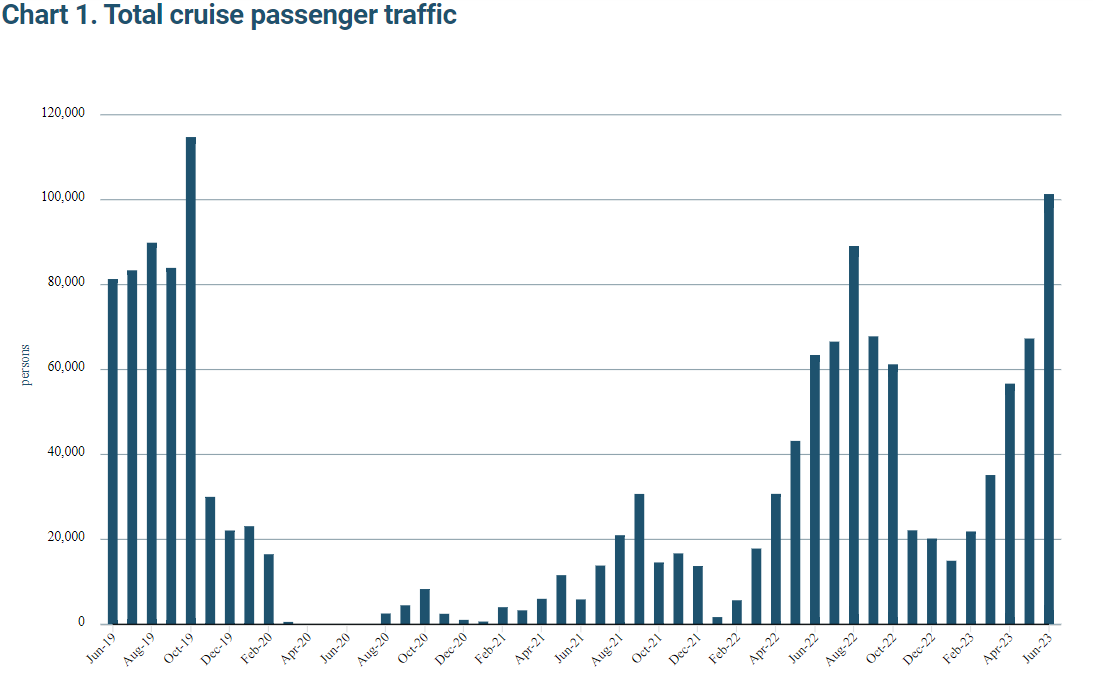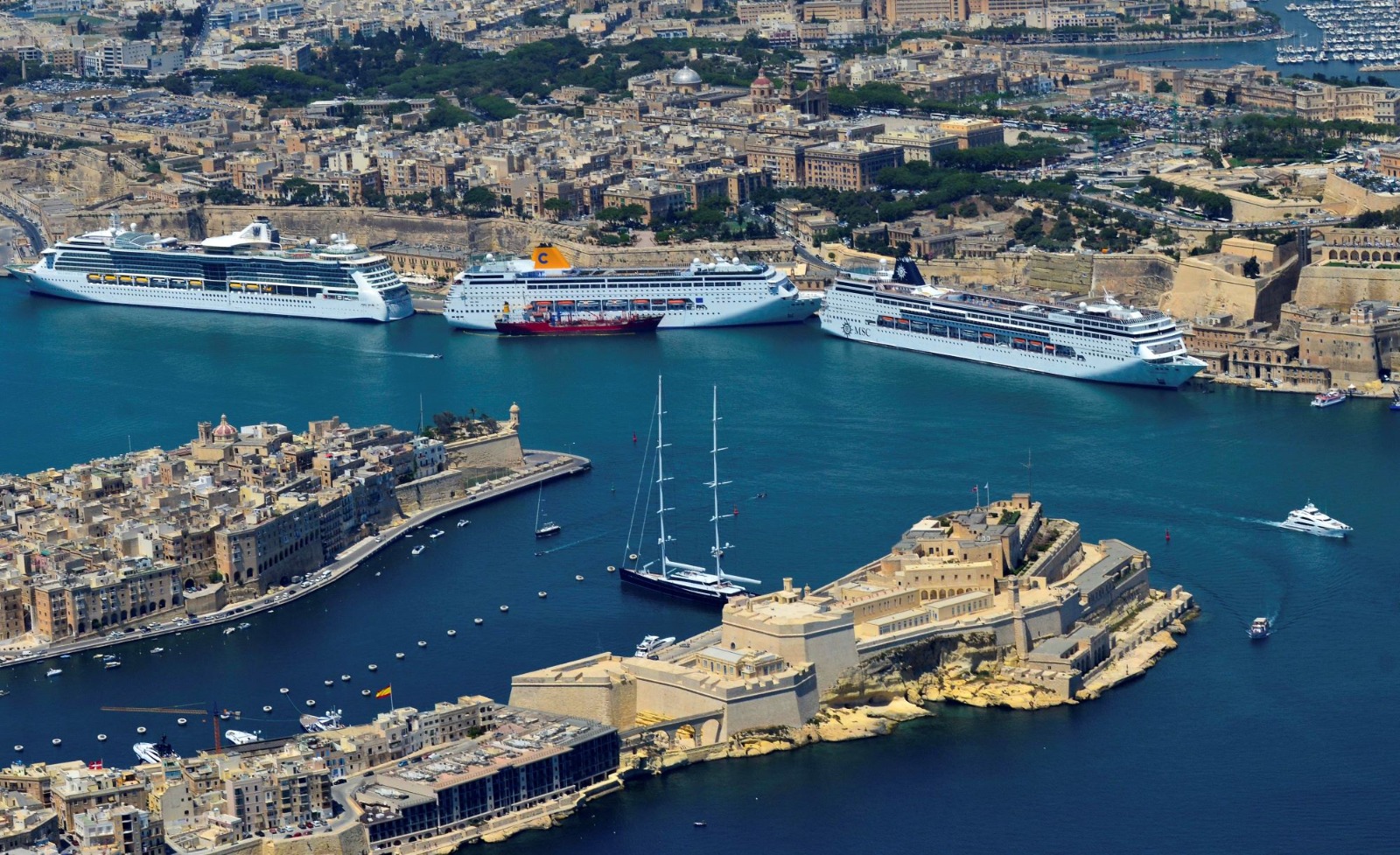A total of 98 cruise liners docked at Maltese ports during the second quarter of 2023, four fewer than the previous year. Yet, despite the decrease in ships, the number of passengers was nearly double at 225,313.
Transit passengers accounted for the absolute majority of traffic, reaching 186,149, while the rest of the passengers landed in Malta.
Interestingly, despite a sharp increase in passenger traffic, the absolute number of passengers who stayed overnight dropped by 69.8 per cent to just 6,379, while the number of passengers who berthed in Gozo dropped by 88.5 per cent, to just 94.

On average, every vessel that berthed in Malta carried 953 more passengers during Q2 2023 than it did in Q2 2022, reaching 2,299.
Passengers from EU member states comprised 50.9 per cent of total traffic. The major markets were Italy, which accounted for 16.9 per cent of the total passengers, followed by Germany, with 12.6 per cent.
The total number of passengers from non-EU countries stood at 110,562, of whom 50.5 per cent came from the United Kingdom and 24.8 per cent came from the United States.
On a gender basis, female passengers made up 54.0 per cent of the total. The largest share of passengers fell within the 60-79 age bracket (34.8 per cent) and were followed by those aged between 40 and 59 years (33.7 per cent).
French NGO accuses Metsola and MEP of working with USA to dismantle Green Deal
Bloom calls out EU officials for 'adopting the Trump administration's strategy' to torpedo corporate environmental due diligence
Storm-hit businesses can now apply under amended Malta Enterprise scheme
A new measure offers targeted aid to storm-hit businesses while giving non-compliant operators one year to regularise their permits
Access to finance and rising fraud risks discussed at Malta Women & Finance Summit 2026
Expert advice for spotting scams and opinions on investing






